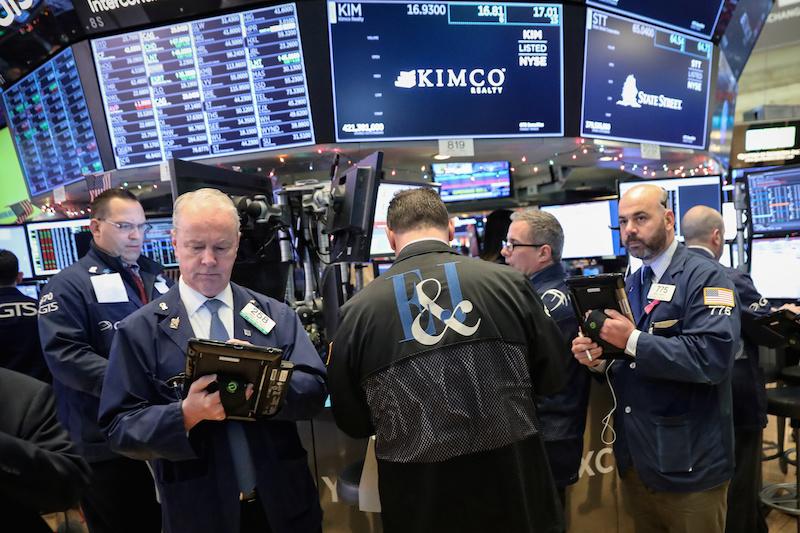Wall Street fell for a fourth straight day on Dec. 10, sending the S&P 500 to an eight-month low, with banks, energy and health stocks leading losses on mounting worries over global growth, the U.S.-China trade war and uncertainty over Brexit.
But the S&P and Dow Industrials, which have already lost all their gains for the year in a 4.5 percent slide last week, came off their session lows. The bounce came as Apple’s shares sharply cut their losses, which also helped the Nasdaq reverse course and post slight gains.





